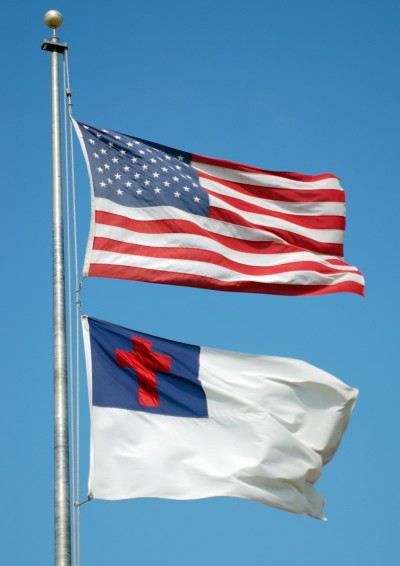Patriotism vs. nationalism

“What’s Wrong with Christian Nationalism?” asks Paul D. Miller, professor of the Practice of International Affairs at Georgetown University’s School of Foreign Affairs in his recently published book The Religion of American Greatness.
The question is provocative. Who says there is anything wrong with Christian nationalism? Doesn’t Christianity impart values that make for good citizenship? Shouldn’t we love and support our nation?
Miller, who has served both in the military and as a member of the National Security Council staff, is writing as a Christian insider, who accepts the faith’s truth while carefully distinguishing between healthy patriotism and corrosive nationalism.
Individuals have natural emotional attachments to the nation where they were born and nurtured or to which they have immigrated. They have imbibed its culture, typically speak one or more of its native languages, revere its flag and other symbols, and share its values. Political theorists who emphasize civic republicanism believe that those who live in nations that acknowledge them as citizens rather than as mere subjects will be especially committed to their nation. Christians have an additional reason to support nations that provide for their freedom of worship.
Long before the U.S. became a superpower, we Americans thought of ourselves as special. Puritan fathers expressed the wish that we would be “a city upon a hill.” Frontiersmen thought that Americans had a manifest destiny to spread from coast to coast. Americans helped “save the world for democracy” by beating back authoritarianism in World War I, nazism in World War II, and communism in the Cold War.
Miller argues that what has made America special and what should bind Americans together is not a special anointing by God, a singular commitment to Christianity, or superior virtue. Our Americanness stems from our commitment to the principle of equal rights in the Declaration of Independence and to an approximation of justice through the rule of law as established by the U.S. Constitution.
These principles are not uniquely Anglo-Saxon or Christian. Instead, they rest on the fundamental idea that all individuals have inherent worth, that all are equally entitled to “life, liberty, and the pursuit of happiness,” and that the best way to attain these is through a democratic-republican government that provides for majority rule while honoring minority rights. The Constitution accordingly divides powers among three branches of government (separation of powers), allocates powers between state and national authorities (federalism), divides Congress into two branches (bicameralism), provides for periodic elections, and the like.
Although a majority of citizens through much of American history have been white Christians, we have wisely accepted individuals from all parts of the world. Our Founders further forbade religious tests for office, prohibited governmental establishments of religion, and offered religious free exercise to all.
The U.S. accepts new citizens not on the basis of their race or religion but on their acceptance of our Constitution and the values it embodies. By contrast, those whom Miller identifies as Christian nationalists define citizenship by race or class and seek to cling to power through force and other illiberal means rather than through persuasion and elections.
Patriots take a more nuanced view. They seek the good of all fellow citizens while recognizing that the nation’s greatness rests on the extent to which it lives up to its own ideals. A Christian citizen recognizes that unwavering allegiance to the actions of any single leader is a form of idolatry that is more likely to undermine the ideals of the Declaration of Independence and the Constitution than to promote them.
Christian virtues enhance citizenship, but Christian faith has never been a prerequisite to it. Patriots who love and serve America will do more for it than nationalists who idolize it.
John R. Vile is a Professor of Political Science and Dean of the University Honors College at Middle Tennessee State University. He is the author of numerous books on the U.S. Constitution and its interpretation and development.



























